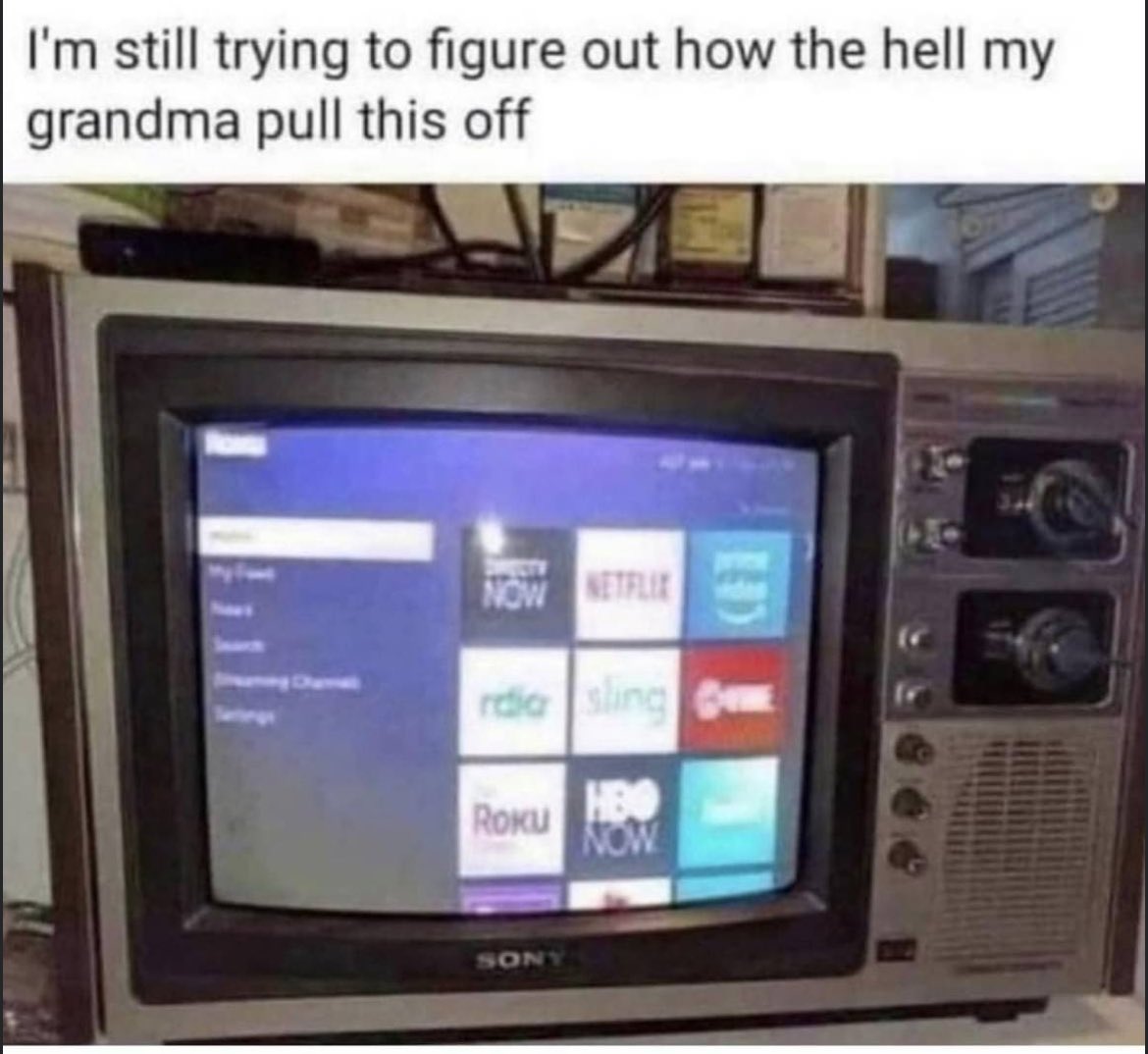this post was submitted on 11 Apr 2024
478 points (97.0% liked)
Memes
8313 readers
1503 users here now
Post memes here.
A meme is an idea, behavior, or style that spreads by means of imitation from person to person within a culture and often carries symbolic meaning representing a particular phenomenon or theme.
An Internet meme or meme, is a cultural item that is spread via the Internet, often through social media platforms. The name is by the concept of memes proposed by Richard Dawkins in 1972. Internet memes can take various forms, such as images, videos, GIFs, and various other viral sensations.
- Wait at least 2 months before reposting
- No explicitly political content (about political figures, political events, elections and so on), [email protected] can be better place for that
- Use NSFW marking accordingly
Laittakaa meemejä tänne.
- Odota ainakin 2 kuukautta ennen meemin postaamista uudelleen
- Ei selkeän poliittista sisältöä (poliitikoista, poliittisista tapahtumista, vaaleista jne) parempi paikka esim. [email protected]
- Merkitse K18-sisältö tarpeen mukaan
founded 2 years ago
MODERATORS
you are viewing a single comment's thread
view the rest of the comments
view the rest of the comments


HDMI/Composite to coax convertor if that TV was recent enough to be "cable ready", otherwise you'll then need a coax uhf/vhf/fm adapter in the chain.
IIRC, back in the day, there were even composite-to-vhf adapters, but I can't seem to find any currently sold so either my memory is lying to me or they're no longer produced.
It has dials. The kind that make an audible thunk when you change the channel. You think there's really a chance of it being cable-ready?!
Yes, I had a TV in the 80s that had vhf/uhf tuning dials and coax as well since it was "cable ready". It was also oddly setup with the coax input directly below the uhf/vhf standoffs. So anything you connected to it got in the way of interacting with the coax in. And if the coax you used had a wide nut for threading on it could wind up touching the prongs on the uhf/vhf inputs feet causing fun interference.
Transitional era technology is fun like that.
Prongs? I had to look that up since I hadn't heard of a VHF/UHF connection with prongs before. That doesn't seem very friendly compared to just using a regular plug? In Australia we used these connectors: https://en.wikipedia.org/wiki/Belling-Lee_connector which have existed since the 1920s.
These are the cables I was familiar with way back then.
Wow, interesting. I don't think we had those in Australia. I was born in the very early 90s but my mum had a TV from the 1960s and it had a regular plug (like the one I linked to) for the antenna. Those prongs don't seem user-friendly :)
I had something like that for my Nintendo 64. My TV only had an antenna plug, no composite.
In Australia, we used these connectors even on very old TVs: https://en.wikipedia.org/wiki/Belling-Lee_connector whereas the USA seems to mostly use BNC these days.
I had a box with antenna in, TV out, and the red/yellow/white inputs. We called those "RCA" - is that the same thing as composite?
Yeah, composite & RCA are synonymous with eachother. IIRC it's the difference between the connector name & cable name similar to rj-4 connector l/port vs cat-# cables.